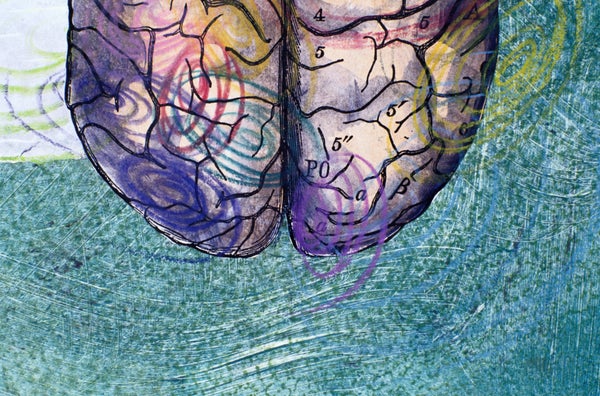The cells lining blood vessels in the brain form tight, tough-to-penetrate junctions that prevent toxic molecules from slipping into the brain.
Unfortunately, this blood-brain barrier also blocks cancer drugs from reaching tumor cells in the brain, creating a significant drug-delivery problem.
Now, preliminary results from a Phase I/II clinical trial suggest that a small implant that emits ultrasound waves can safely open the blood-brain barrier in people, potentially allowing drugs in (Sci. Transl. Med. 2016, DOI:10.1126/scitranslmed.aaf6086).
On supporting science journalism
If you're enjoying this article, consider supporting our award-winning journalism by subscribing. By purchasing a subscription you are helping to ensure the future of impactful stories about the discoveries and ideas shaping our world today.
Scientists have previously tested ultrasound methods in animals and found that the techniques can aid drug delivery to the brain. These methods often rely on injecting microbubbles—typically fluorinated gases encapsulated in lipid spheres. The sound waves cause these bubbles to expand and compress. That mechanical energy helps loosen the junctions between endothelial cells lining blood vessels.
To translate such a treatment into people, the company CarThera, founded by Alexandre Carpentier, a neurosurgeon at Pitié-Salpêtrière Hospital, in Paris, developed SonoCloud, an 11.5-mm-diameter ultrasound transducer that surgeons can implant in a hole in patients’ skulls. Carpentier envisions a brain-cancer patient receiving such an implant after a tumor biopsy or a surgery to remove parts of a tumor.
In the new study, the team reported data from 15 glioblastoma patients who had received the implant. Before these patients were treated with the cancer drug carboplatin, they received a 2.5-minute ultrasound session.
By using magnetic resonance imaging to watch a gadolinium contrast agent enter the brain, the researchers found that these sessions opened the blood-brain barrier. And the patients didn’t experience adverse effects from the ultrasound—no signs of hemorrhaging, no complaints of pain, and no indications that speech or motor control was disrupted.
CarThera will start a Phase III trial in 2017 to assess how ultrasound treatments can improve chemotherapy for brain cancer patients. Also, Carpentier is interested in determining if the device can help treat Alzheimer’s disease. Some studies in animals suggest that ultrasound can clear out toxic protein plaques from the brain, in part, by temporarily opening the blood-brain barrier.
Nathan McDannold of Harvard Medical School says the clinical trial data are an impressive milestone for the ultrasound therapy field. He is working on similar methods that don’t rely on an implant and instead use an external array of 1,000 ultrasound transducers to focus on a target in the brain. So, he says, although the SonoCloud is more invasive, it is a simpler system.
